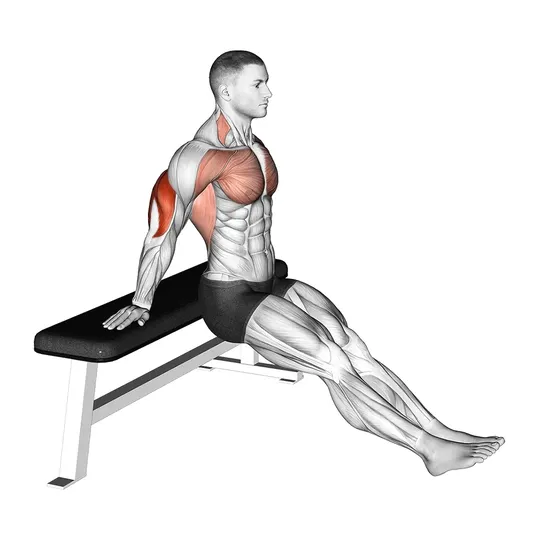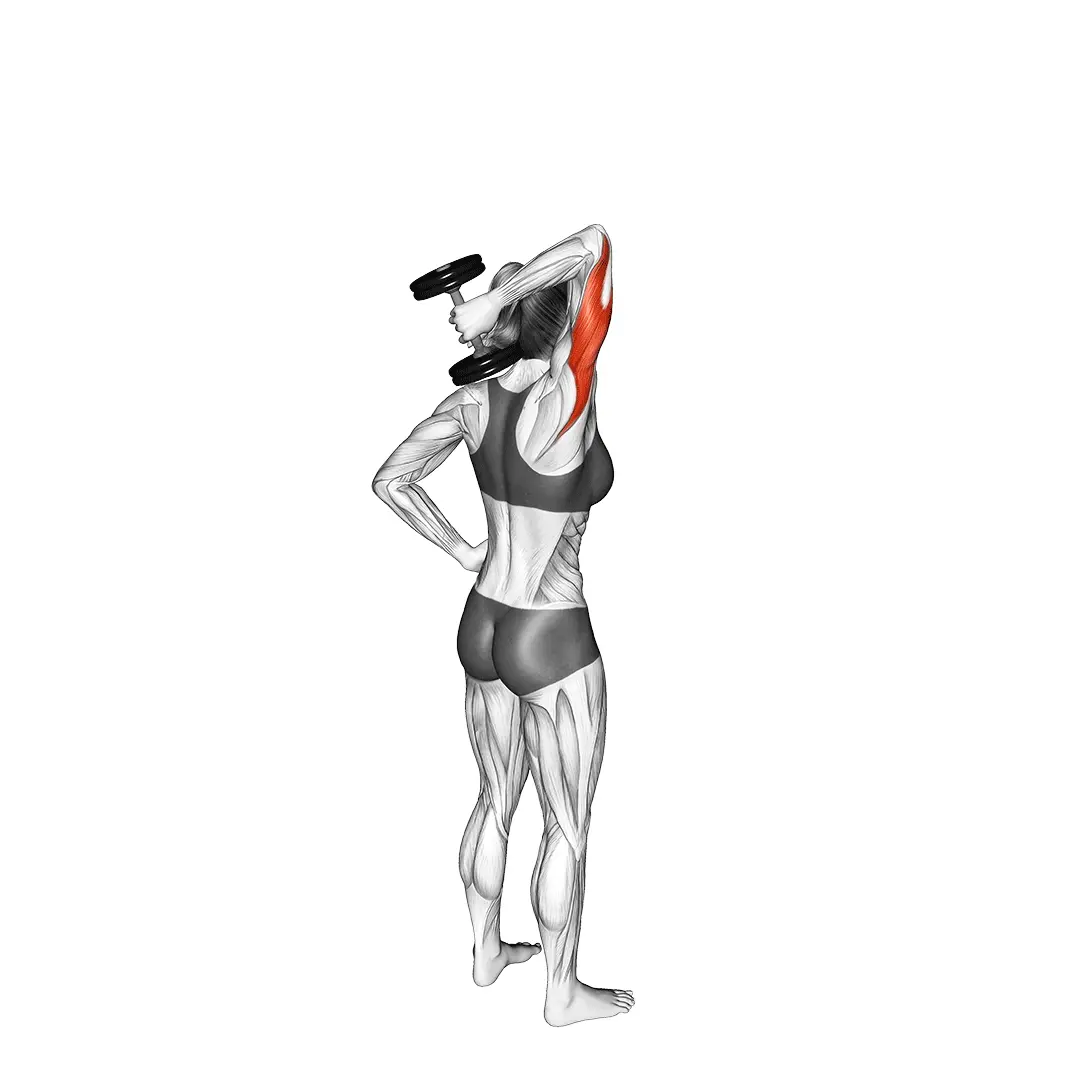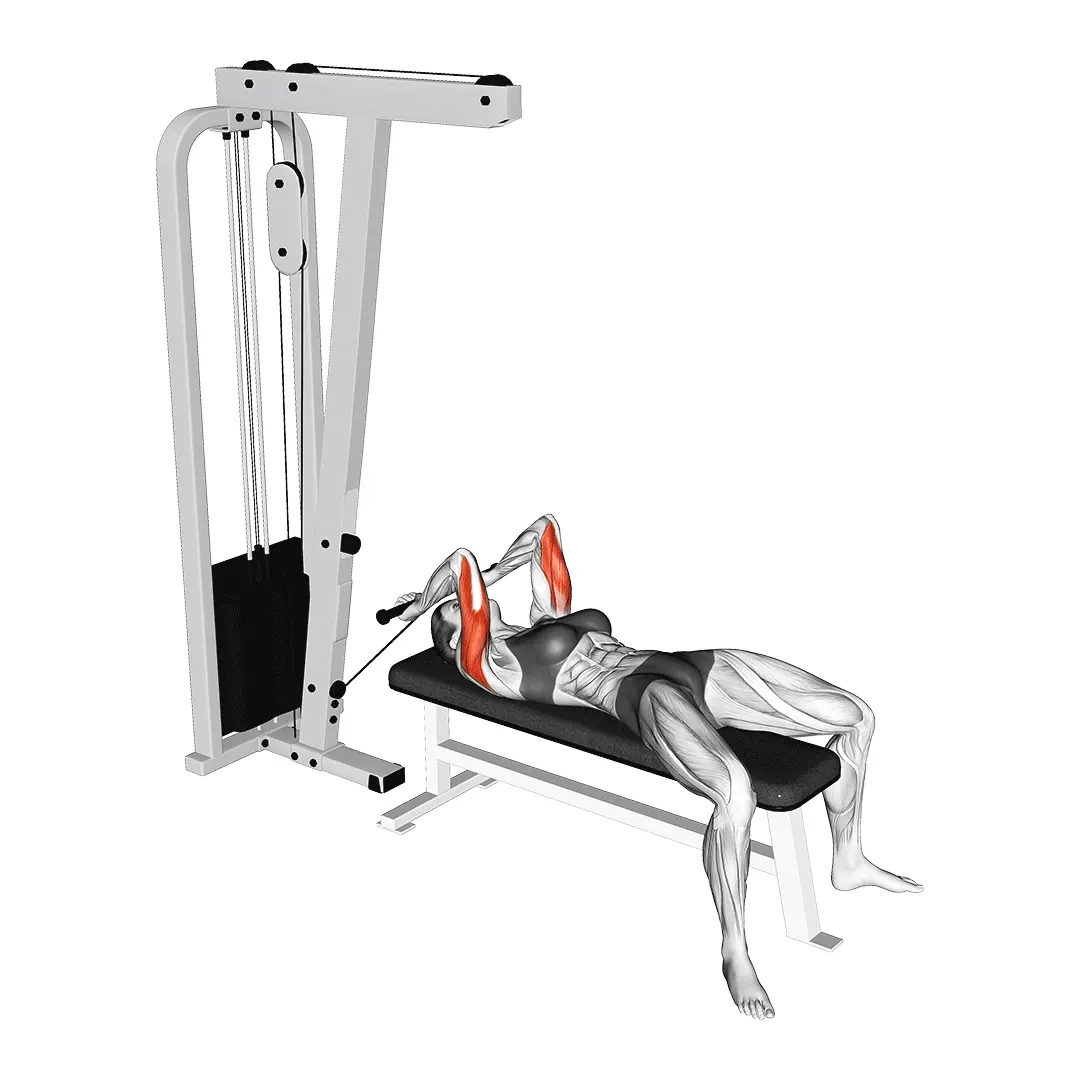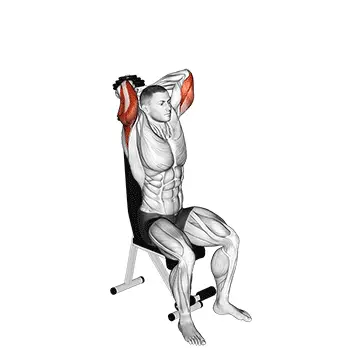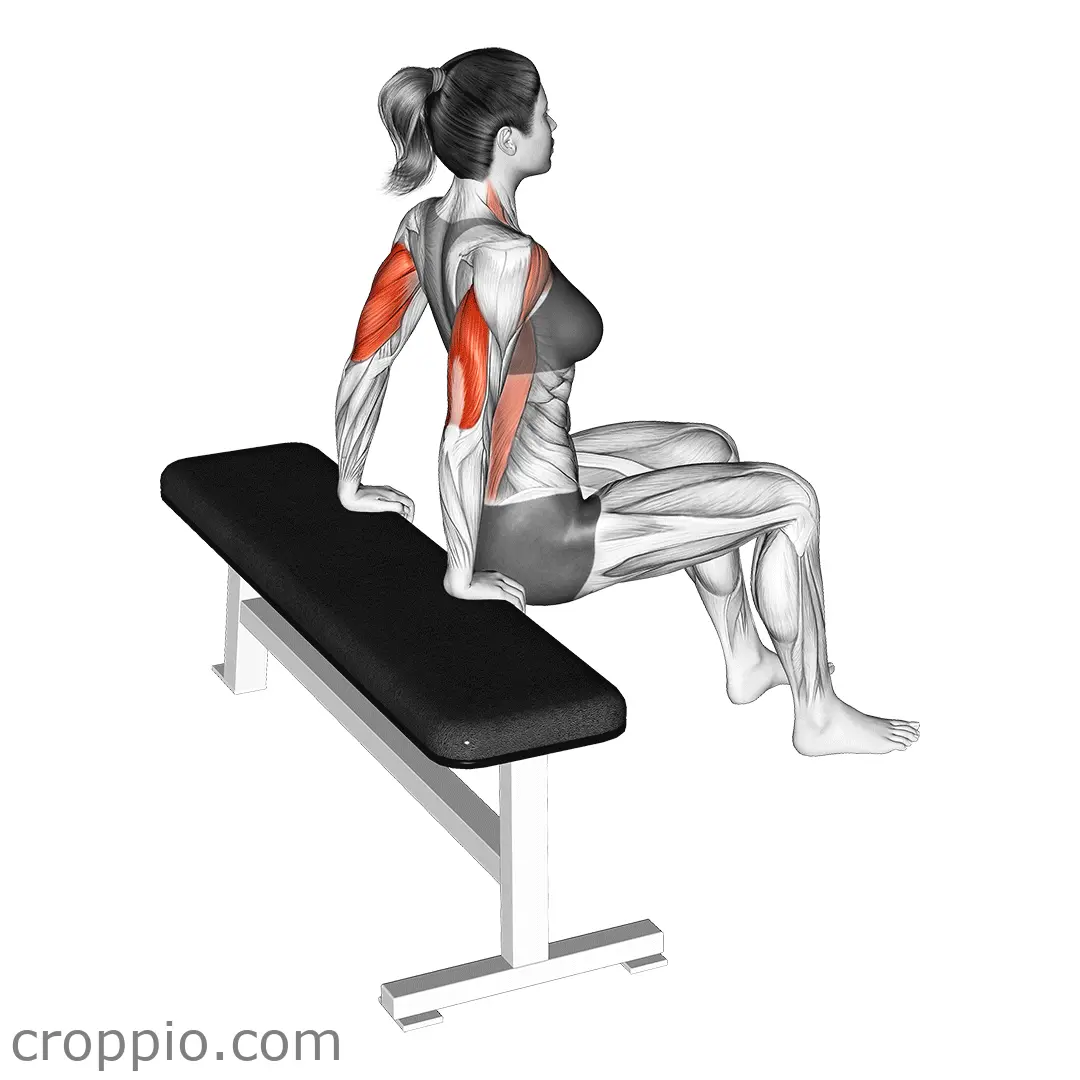Weighted Bench Dip
Weighted Bench Dip Workouts
Similar exercises
Description of the Weighted Bench Dip
The Weighted Bench Dip is an effective compound exercise that primarily targets the triceps, deltoids, and the pectoral muscles. By adding weight, this exercise intensifies the workout, improving upper body strength and muscle definition. It's commonly performed using a bench, but it can also be done with a chair or sturdy surface. The movement mechanics of the weighted bench dip mimic that of a dip station, allowing users to leverage body weight and additional resistance to amplify muscle activation.
Muscles Involved
- Triceps Brachii
- Shoulder Deltoids (Anterior and Lateral)
- Pectoralis Major
- Rhomboids
- Latissimus Dorsi
Top Mistakes
- Flaring elbows outwards, which can strain shoulder joints.
- Not using a full range of motion, resulting in weaker muscle activation.
- Rounding the shoulders, which can lead to injury over time.
- Hasty movements, risking poor form and balance.
Execution Tips
To perform the Weighted Bench Dip correctly, follow these steps:
- Start by sitting on the edge of a bench, with your hands placed on the edge, shoulder-width apart.
- Extend your legs out in front of you, resting your feet on another bench or floor for stability.
- Place a weight plate or weighted vest on your lap, ensuring it feels secure.
- Lower your body by bending your elbows until your arms form a 90-degree angle.
- Press through your palms to lift your body back to the starting position, engaging your triceps throughout the movement.
Workouts
The Weighted Bench Dip can be incorporated into various workout routines, such as:
- Strength training sessions focusing on upper body.
- Triceps-specific workouts paired with exercises like close-grip bench presses.
- Full-body circuits that include compound movements for efficiency.
Conclusion
The Weighted Bench Dip is a valuable exercise for anyone looking to strengthen their upper body, specifically the triceps and shoulders. By keeping proper form, avoiding common mistakes, and gradually increasing weight, you can maximize benefits while minimizing injury risk. Incorporating this exercise into your workout regimen can enhance muscle growth and overall upper body strength.
